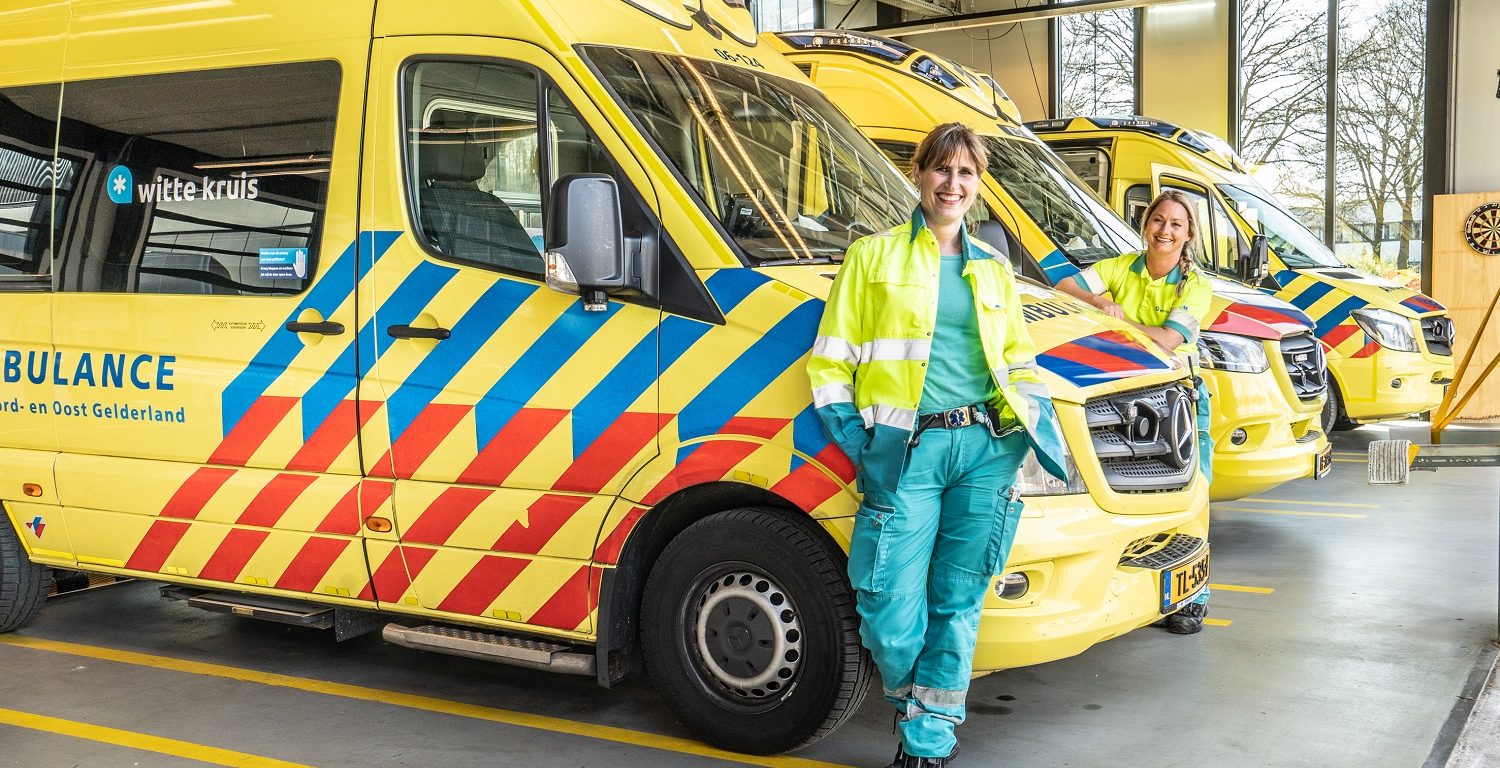Willeke van Stijn and Fleur Teunissen are nurses for Witte Kruis, a Transdev subsidiary and the largest provider of ambulance services in The Netherlands. Their work appears not to have changed dramatically the last couple of weeks, despite having to deal with the coronavirus outbreak.
“Apart from the gloves, we now also wear face masks most of the time when we respond to calls,” Fleur explains. “If the patient shows certain symptoms we put on a special protective suit that covers the entire body.”
Their day-to-day life is not much different, except that there are far fewer road accidents and fewer calls on weekend nights. The two nurses note, however, that patients who consult for a reason other than coronavirus tend to apologize for it, and fear that the epidemic may lead them to neglect other pathologies.
Willeke seems to notice a slight change in the public’s reaction to ambulance personnel: “people are always curious to see what we do but these days we get different looks. They watch us do our job more… Intensely.”
They point out that while in the first weeks the Dutch population was quite sceptical about COVID-19, believing it to be a simple flu, much has changed since most public spaces have closed. The coronavirus is much more serious than just the flu: “Some patients are in a really bad shape.” Willeke says. Fleur adds: “a lot of times patients get very emotional when they see us arrive in those protective suits. Especially when they realize they might not be able to see their loved ones for a long time.”
Both women have immense respect for their colleagues in intensive care. Despite the intense workload, they would not hesitate to join them if necessary.
During these difficult times the two nurses try to take their minds off things by running an Instagram account. “We started doing this before the corona crisis but especially in these times it’s an invaluable instrument to inform the public. There are many experiences to be shared!”

